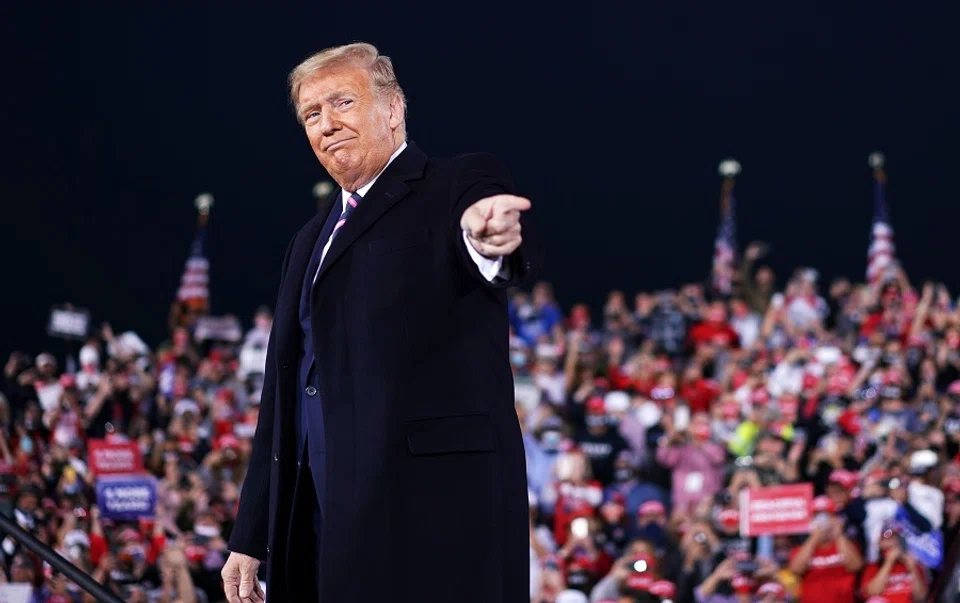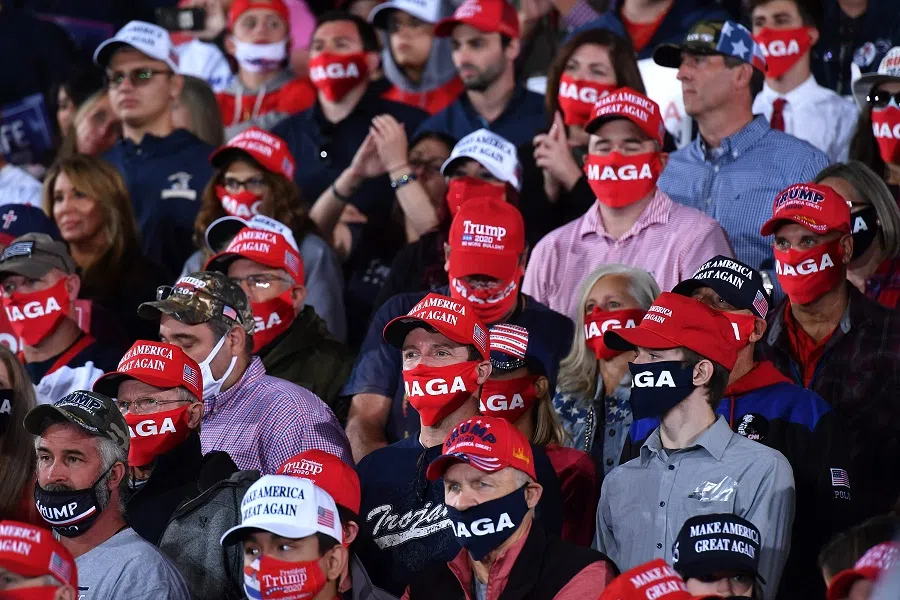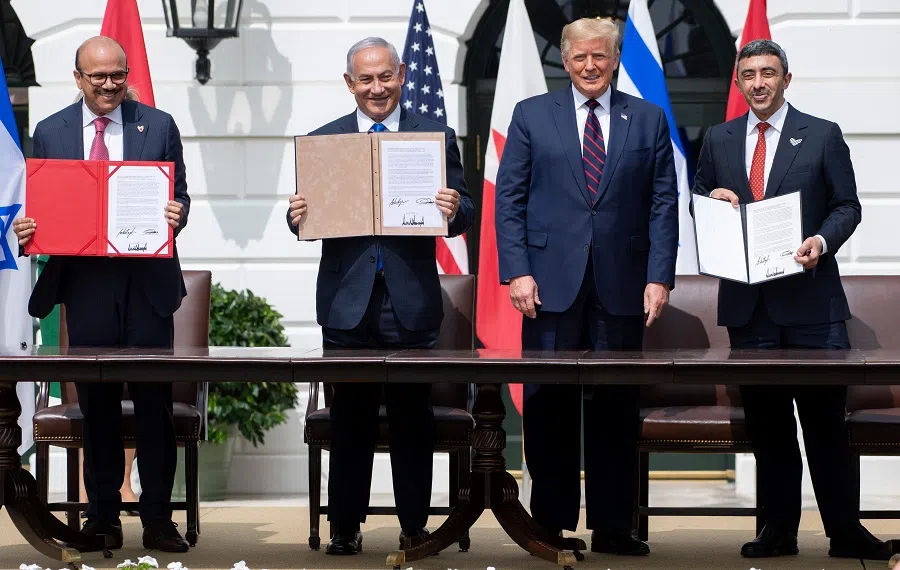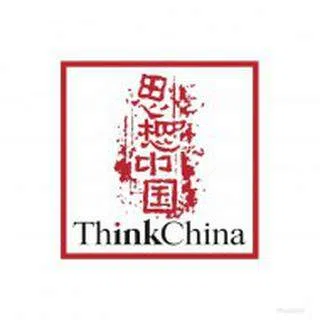There is no grave crisis in the US; China must not read the US wrongly
Wei Da says to avoid making erroneous judgements in taking certain actions, both the US and China need to calmly evaluate and recalibrate their strategic assessments of each other. If cool heads are kept, events such as the upcoming presidential election are not to be feared but welcomed as a harbinger of change.

Since the start of this year, China-US rivalry has been getting worse with both powers frequently firing salvos at each other. A showdown seems inevitable and may be necessary to determine the ultimate victor. If so, the strategic understanding and assessments that both sides have of each other are crucial. An erroneous judgment could mean making wrong moves that lead to defeat.
As the US's strategic assessment of China in the ideological, economic, technological, military, as well as educational, media and cultural realms have been delved into at length by senior US government officials through speeches and published articles, I will not go into them here. Needless to say, as many of the US's assessments have been strongly refuted and questioned by China, they still need to be tested with objective reality and results.
US's changed approach calls premise of relations into question
While China's strategic assessments of the US have not been officially expounded upon, a few points can be gathered through channels including the government and academia. Namely, China thinks that China-US relations have worsened because the US insists on containing China's rise and development; the Trump administration's "America First" policy disregards everything else, resulting in America's weakened international leadership and influence and the collapse of the international security and political order; and lastly, the upcoming US presidential elections are set to end in a deadlock, leaving the US struggling to stay afloat and unable to attend to anything else.
"Many claim this is an effort to thwart China's legitimate development aspirations, to 'contain' China's rise, or to 'decouple' from China. This is categorically false." - US Ambassador to China Terry Branstad

In response to these postulations, the US has made clarifications and rebuttals in some areas, while letting the facts speak for themselves in some others. I think that these are all worthy of serious attention and analysis from the Chinese side to avoid making repeated erroneous assessments even if they may be politically correct. Otherwise, China-US competition will result in abject consequences and failures.
The People's Daily recently refused to publish an article written by US Ambassador to China Terry Branstad. In the end, a bilingual version of the op-ed was released on the US Department of State website. The article mainly attempted to detail the adjustments and changes made to the current US policy toward China with the goal of achieving "genuine reciprocity and a genuinely balanced relationship" between both sides. The article asserted, "Many claim this is an effort to thwart China's legitimate development aspirations, to 'contain' China's rise, or to 'decouple' from China. This is categorically false."
...if China does not match up to the US's standards, the US will go down to China's level, which is in effect, an eye for an eye, and a tooth for a tooth.

However, the US is currently adopting a different approach in a seemingly tit-for-tat retaliatory fashion: if China does not match up to the US's standards, the US will go down to China's level, which is in effect, an eye for an eye, and a tooth for a tooth. The premise of such assessments lies in whether one thinks China-US relations were "reciprocal" and "balanced" to begin with. Remember, there is only one correct answer.
Ganging up against China?
Other relevant changes in the international environment include the recent turbulence in the international and Indo-Pacific arena, as well as the possibility of the "Five Eyes" alliance becoming "Six Eyes" with the involvement of Japan in the intelligence grouping comprising the US, Australia, the UK, Canada, and New Zealand. The European Union is also increasingly adopting an openly assertive stance towards China, and there is also apparent close cooperation between the US and Taiwan, as well as the strengthening of military cooperation between India, Japan, and Vietnam. Even if the US wants to contain China's rise, do these other countries and regions have to as well?
"America First" policy aside, the Trump administration has actually recently achieved breakthroughs in Middle East diplomacy, scoring multiple political points. Even as it continued to sanction Iran, it facilitated the formal establishment of diplomatic ties between Israel and the United Arab Emirates and between Israel and Bahrain. This is an unprecedented move with far-reaching impacts. The US also facilitated negotiations between Serbia and Kosovo, and talks between the Afghan government and Taliban forces. These diplomatic breakthroughs reduced the burden of US garrisons in the Middle East, Europe, and Afghanistan, fulfilling the optimisation and adjustment strategy of the US military.
...it seems that Trump's so-called "America First" strategy is not an isolation and withdrawal on America's part but just a pause to readjust its strategy to serve its interests and boost its influence and role.

As for the East Asian region, North Korea has not done another nuclear test since Trump's meeting with Kim Jong Un. This gives a ray of hope in the North Korea nuclear weapon issue. From this perspective, it seems that Trump's so-called "America First" strategy is not an isolation and withdrawal on America's part but just a pause to readjust its strategy to serve its interests and boost its influence and role.
As for the upcoming US presidential election, there is no need to interpret intense competition as a grave crisis. An open and transparent political power competition is in fact a great blessing to the country and the epitome of a civilisation at an advanced stage of development.
If all quarters of the US stay logical in their criticisms of the presidential election and exchange views with one another amicably; if the general public holds fast to the sacred vote they have in their hands to decide the country's leadership; and if the American system casts aside white noise and resolutely adheres to the principles and procedures of the rule of law, the process and outcome of the upcoming presidential election would certainly be reasonable, orderly, and positive.




![[Big read] When the Arctic opens, what happens to Singapore?](https://cassette.sphdigital.com.sg/image/thinkchina/da65edebca34645c711c55e83e9877109b3c53847ebb1305573974651df1d13a)
